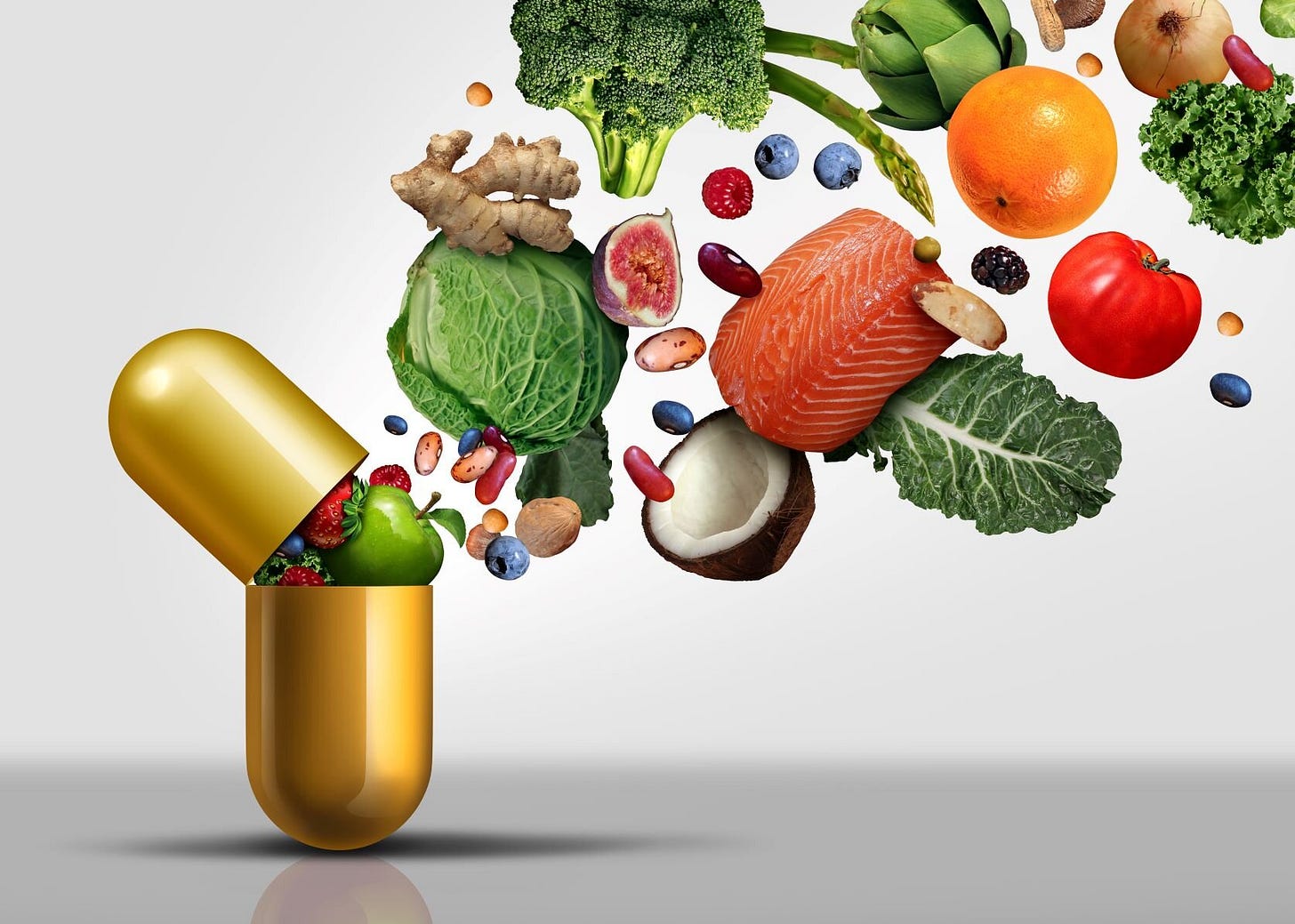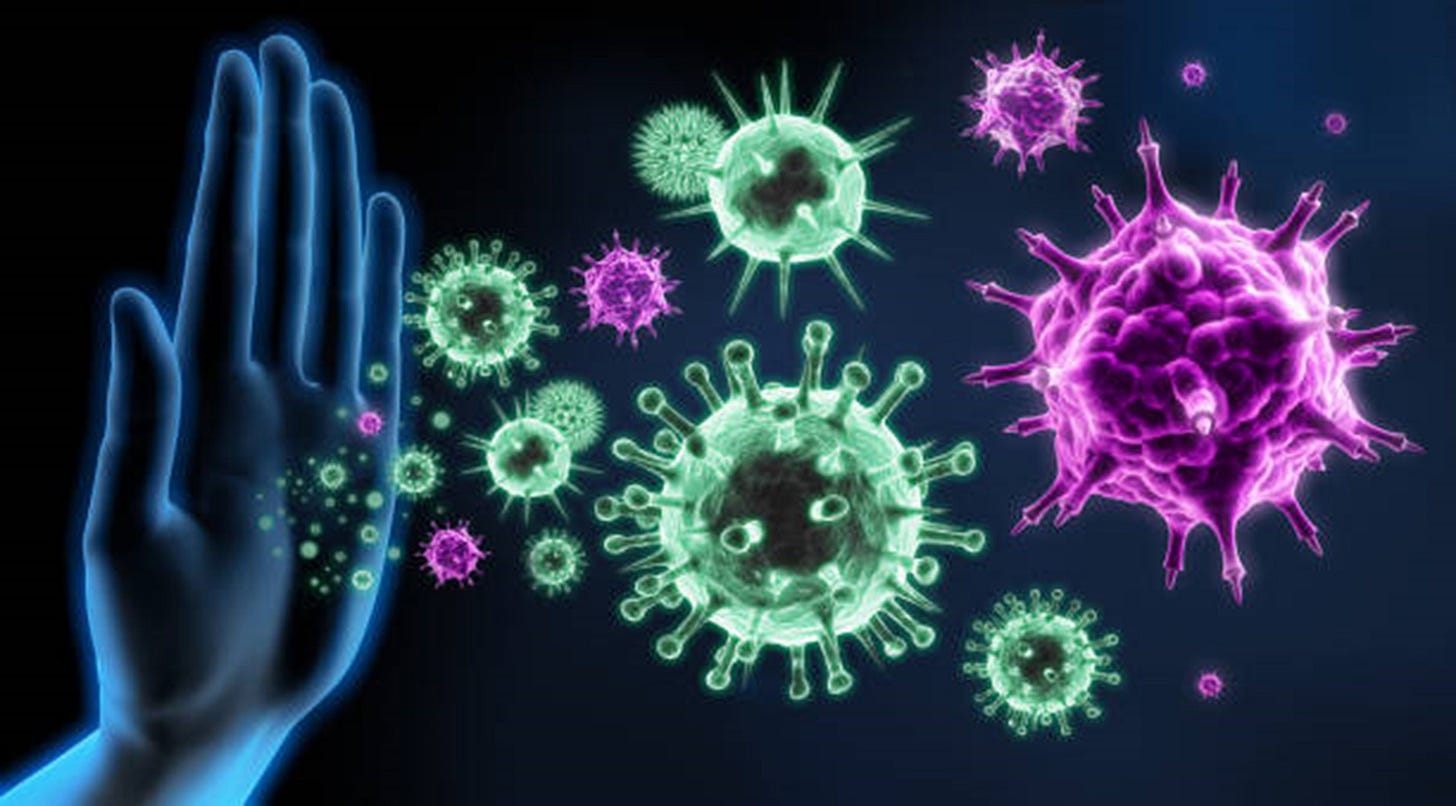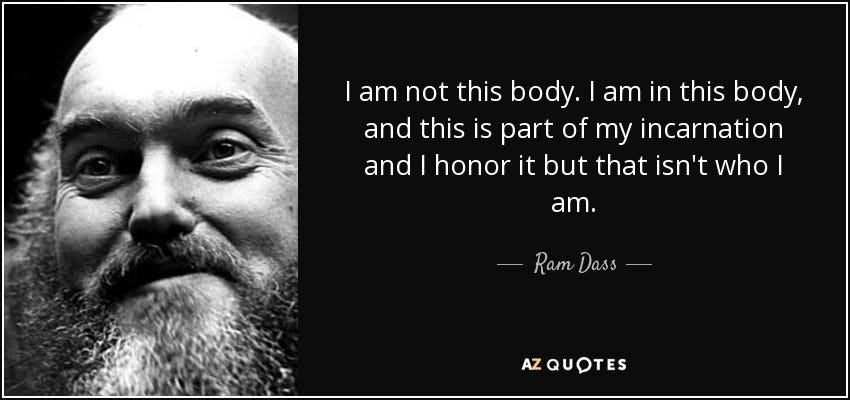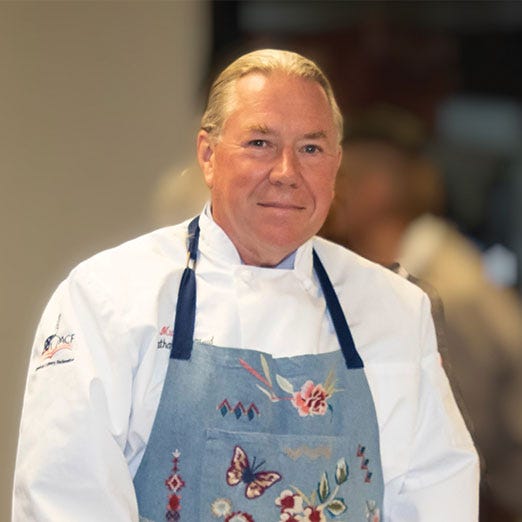⏀ This post is in response to cancer. Two years and two days ago, I had a kidney removed with Stage 3 Renal Cell Carcinoma. As you may be able to tell, I am still here (I think so… ha.) It has not escaped the confines of the kidney but was very aggressive and very close to the supporting blood vessels that leave the kidney on the way to my lungs. It was the size of a large mango, and I had to have a C-section to remove it in one piece. If I had delayed by a couple of weeks from noticing it, it would have been hospice for me had it arrived in my lungs. It was a close call.
I recently conducted a poll. Maybe you saw that. Maybe you responded.
I am writing this for you, Rick & Sandy.
In any case, one of the respondents, a dear friend, colleague, and teacher, Sandy, recently shared that her beloved husband, Rick, also has had some cancer arrive. So, she asked me to address some items, such as optimal wellness and eating for immunity after cancer. It’s an honor to be asked to comment for these dear friends.
I also have a dear friend in Costa Rica, Vani, who, only a few days ago, had radical treatment for breast cancer. She is healing now and surrounded by love and kindness, as well as a very decent Costa Rican National Health Care System. She and her beloved Len are resting at home and being tended to by her beloveds.
You have the power to create a supportive environment for healing. You are strong, and every healthful step you take affirms your commitment to a vibrant future.
Here it goes!
Nutrition’s Role in Cancer Recovery
Research reveals that 70% of lung cancer patients face malnourishment during treatment, highlighting the strong link between diet and outcomes. Staying well-nourished can help you better handle side effects, maintain strength, and lower the chance of recurrence. This may not seem like rocket science, but you will quickly understand that it's not something you could easily explain to a child, either.
As a survivor of cancer myself, I can tell you that it's a slippery slope. One of the features of my cancer was that I was always hungry. I would literally eat grocery store Sushi while at the grocery store in order to have enough energy to get home to make lunch. This may seem odd considering that we're speaking about malnutrition during cancer or at least after cancer, but what you fail to understand or perhaps have a view upon is that before my cancer surgery, my cancer was in complete demand of every calorie that I could possibly give it in order to consume me faster. After cancer, I totally understand this concept because I lost 50 pounds and did not want to eat anything. If you can imagine, this is without chemotherapy or radiation. I can only imagine what it would be like if I also had those.
Food as Medicine
Experts in oncology progressively recognize specific foods as significant contributors to the healing process. Diets that are abundant in vegetables, fruits, whole grains, and legumes bolster the immune system, safeguard tissues from damage, and mitigate inflammation. It could be sad that I'm the kind of person who may only ”slightly recognize” the authority of oncology experts. This is because I grew up on a farm in West Virginia, and the foods we ate were completely consistent with health and balance. After my father died in 1976, my mother could not produce the kind of wholesome, qualitative meals that she did in the past. Then it went bad and fast. There was a time in my late teens before I joined the military when all we had to eat was fast food that my mother acquired on the way home from her work at the Veterans Administration as a surgical nurse (imagine).
Post-Treatment Nutritional Requirements
Following cancer treatment, the body necessitates particular nutrients to facilitate recovery. Proteins play a crucial role in tissue repair and the preservation of muscle mass. Weight management objectives may vary; you may aim to regain lost weight, while others may need to monitor their weight to prevent excessive gain. I had a complete see-saw pre- and post and have heard the same from others.
The gut microbiome is also significant for immune function and nutrient absorption; therefore, fiber-rich foods should be included. With each nutrient-dense meal, you empower your body, allowing it to rebuild and regain strength.
Let’s get clear. You are what you eat. As Brillat-Savarin said, “Tell me what you eat, and I will tell you what you are.” So, what are you going to do? Ah… let’s just grab burgers on the way home. I will personally come and ‘smack your ass’,* as my mom would say.
Strengthening Your Immune System
Cancer (and all other auto-immune diseases) and its treatments can weaken your immune defenses. Balanced nutrition helps restore immune function and guard against infections.
Key Immune-Supporting Nutrients:
Vitamin C (in strawberries, red bell peppers, citrus)
Vitamin D (in fatty fish, egg yolks, sunlight)
Vitamin A (in carrots, sweet potatoes, leafy greens)
Zinc (in oysters, beans, whole grains)
Selenium (in nuts and seeds)
If you tell me you do not like anything above, 1. liar, liar pants on fire, and 2. I am coming over there and see the * comment above.
Gut Health and Immunity
Over 70% of your immune system resides in your gut. High-fiber foods and fermented products like yogurt (nondairy also works; it is about the bacteria, not the food it eats) or kefir promote good bacteria, reduce inflammation, and enhance immune responses.
Aim for balance rather than “supercharging” your immune system. A well-rounded diet typically covers micronutrient needs without risking excessive supplementation.
You are building a strong foundation for healing from the inside out, and you deserve to feel proud of each small improvement. Every time I sit somewhere, and my body says, “Burger,” I say, “I am in charge here”, and it seems to work. So far. (Help)
Reducing Inflammation and Supporting Repair
An anti-inflammatory approach benefits cancer recovery. Diets like the Mediterranean plan, with ample plant foods and healthy fats, help regulate chronic inflammation. Spices like turmeric, ginger, and garlic offer added support.
DNA Repair Nutrients:
Selenium protects cells from oxidative stress.
Zinc helps key DNA repair enzymes function properly.
Folate (from leafy greens) aids DNA formation.
Antioxidants from colorful vegetables and fruits shield cells, but high-dose antioxidant supplements may do more harm than good during treatment. Whole foods provide the safest path to consistent, balanced support.
You are actively nurturing your body by choosing foods that heal and restore, and you take courage in knowing you are part of your own success story.
See, here is the thing. Do you want someone to coach you through how to make these things tasty and work for you? I am right here. More to follow on that.
Practical Food Safety
Your immune system may be delicate after cancer treatment. Proper food handling can protect you from infection and speed recovery.
Neutropenic Precautions:
If your white blood cell counts are very low, follow stricter rules, like avoiding raw or undercooked foods, like Sushi. Generally, raw foods are GREAT for you, but not now.Safe Preparation:
Wash hands thoroughly
Separate raw meat from produce
Cook meats to safe internal temperatures (if you don’t know, it’s easy to Google)
Refrigerate leftovers within two hours
Eating Out:
For a while, focus on freshly prepared items served steaming hot. Avoid buffets and salad bars where food sits out. Fresh wins every time.
These simple steps keep you safe. By staying mindful of cleanliness and cooking practices, you show respect for your healing process.
Integrating Nutrition with Other Recovery Practices
Cancer recovery thrives on an approach that unites good nutrition, physical activity, and emotional well-being.
Timing Meals Around Exercise:
A protein-rich snack within 30–45 minutes after activity aids muscle repair. Staying hydrated and eating a balanced meal a couple of hours beforehand can help you get the most from exercise.Improving Sleep Through Diet:
Avoid heavy meals or alcohol right before bed. A small, high-protein snack (e.g., almonds or milk) can support restful sleep. I can tell you that anything after about 6 p.m. = a bad night’s sleep for me.Mindful Eating:
Pay attention to hunger cues and savor each bite. This cuts down on emotional or automatic eating.I sometimes try to remember that I am not this body.
What?
Well, this body is mine because it is a collection of food over the course of the last 62 years. It took a lot of calories to build this fine specimen! Ha! But it is not me. If I have a cup and hold it, I have a cup. I can even say, “This is my cup”. But you will not hear me say, “This cup is me.” If so, you may think I lost my marbles. Because I have a body to use and a mind to use, that does not make it me. I am the life that animates this body and mind. This is how I got better.
Knowing that my body and mind are here for me as tools to experience this life, and yet, they are not me, just my interface with this life. When you realize, as I did, that we are all one breath not taken away from the dead, you realize how fragile life really is. In that, treat your bodies and minds as the sacred gifts they are and use them as ways to detect and report to you what you really, really need. Your compulsions of the body and mind want the burger. Your lifeforce knows better. You get better by instructing your mind and body to follow your instructions.
You cultivate healthier habits that strengthen your mind and body by honoring your body's signals. You bring hope and determination to each day of your recovery, and well, you can do this BEFORE and after any moment of your life.
Addressing Myths and Seeking Facts
Misinformation about “cancer-fighting foods” is common. For example, “sugar feeds cancer” is oversimplified; everything we eat fuels our cells. Still, minimizing refined sugars and processed foods remains wise because they can contribute to obesity and inflammation, factors linked to recurrence. This is a whole idea about nutritional wellness.
Hey? Would you like a free draft of my book, “Thrive,” about nutritional density in foods? Send me an email and ask. I will send it to you. Compliments of the Chef. It’s soon to be released (thus the draft).
Supplements should be used cautiously, as they may interact with treatments or cause other complications. Always talk with your medical team before starting any new supplements. This is super important. Ask any hippie. I remember an episode of a 70’s TV show called “Emergency” (I think) about two paramedics (it was kind of like the show “CHiPs”), and the guys roll up on a group of hippies that decided that daffodils were delicious. They were all in cardiac arrest or about so. Why? Daffodil bulbs are full of atropine, which will stop your heart cold. So listen, check first. There is tons of information from reliable sources about interactions and precautions with the heavy-lifting drugs used for cancer. Ask me if you are unsure. I will look for you.
You make empowered decisions when you seek evidence-based guidance and work closely with trusted healthcare professionals.
Food can be a true ally in cancer recovery, offering immune support, reducing inflammation, and aiding cellular repair. The best approach focuses on balanced, whole-food nutrition, smart food safety, and consistency over fads or extreme measures.
Combine nutritious eating with regular activity, quality sleep, and mindful self-care for the best results. You champion your own healing by adopting these strategies and working with healthcare experts. Share these insights to uplift others on their cancer recovery journeys.
You are worthy of thriving. You have what it takes to nourish your body and nurture your spirit daily.
Blessings to you, cancer or not. Why don’t you share this post with a friend? You may help improve a life. You would certainly make mine better, just sitting here typing this out.
Actually, I am really asking you to share.
Cancer free,
Jonathan









I am so glad you made it two years and three days! Good job, body. Good job, Chef. We love you and are so grateful you're doing okay. Thanks for educating us about the power of food as medicine.
Thank you for sharing this J, I had my cancer diagnosis in 11.5.2024 & surgery 12.6.2024. With my screening follow up next month. I am very grateful to not have Not had to have Chemo or Radiation, both were on the table.
I have been mindful with my sleep, stress & food intake. I have made many changes & mistakes in the past 4 months. I am interested in your book draft, I appreciate you & your work on various topics. Big Love to you and being Cancer free!